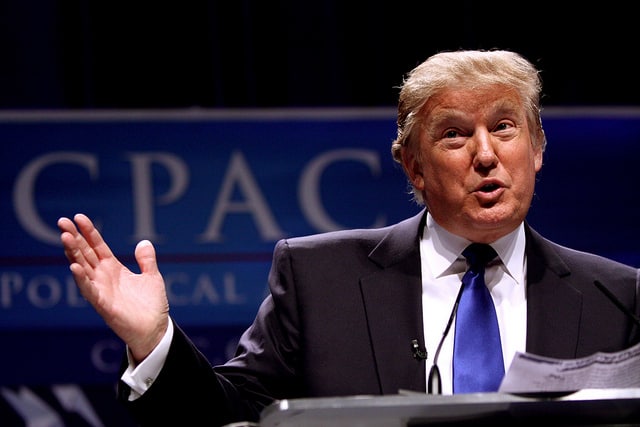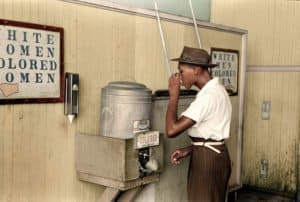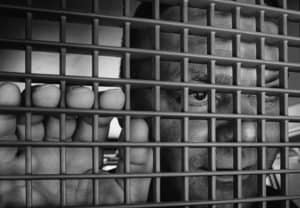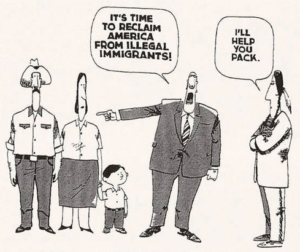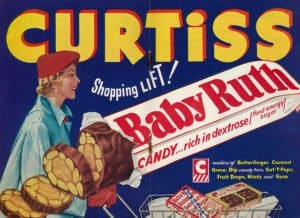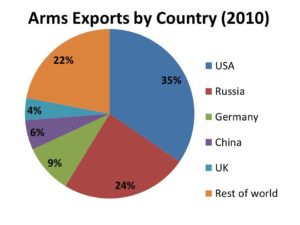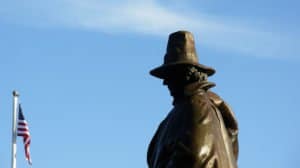Criticism of our sitting president has become commonplace. Though almost always accurate, such criticism is sometimes accompanied by an implicit assumption that things were virtually perfect before his presidency, all the while signalling one’s own progressivism (i.e. “I would have voted for Obama a third time if I could”).
And there’s no question that 45 has turned the clock back on most of our country’s progress. But it’s important to also consider that none of these worsening issues are really new, because their underlying causes have been around for a while; in other words, our president’s actions and rhetoric are symptoms, rather than the start, of our problems.
Stepping back and noting that is critical because when we rest on the laurels of our past “progress,” it can become a reason to not look at the groundwork that allowed for our current state of affairs. When this happens, our negative slide only gets worse. And so, here are a few of those long-standing issues (in no particular order) it’s important to acknowledge and which we can never imply began on January 20, 2017:
1. Our society being “so divided” – The presidential campaign was a nasty and exhausting experience, leading some to decry the deep “divisions” it sowed in our society. Yet, in virtually all of our cities, residents could almost always tell you where the [insert racial group here] part of town is. There’s also the racist history of why and how suburbs were created. This didn’t start last year.
2. Racism in the White House – Woodrow Wilson sought peace in Europe during and after World War I, but at home, he segregated federal agencies and generally surprised even the people of his time with his racism. His often-tacit support for the Ku Klux Klan, policies, and attitudes, contributed to the continuing of the country’s domestic reign of terror against African-Americans and other groups such as Latinos, Jews, and Catholic immigrants. A little more recently, as documented by President Reagan’s first education secretary, cabinet members and staffers would sometimes throw around racial slurs during policy discussions, for example describing Arabs as “sand-n*ggers” or MLK as “Martin Lucifer Coon.”
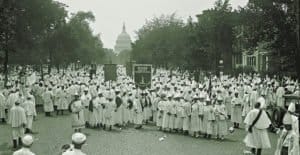 3. Mass incarceration/“Law and Order” – Especially starting in the 1960s, “law and order” politicians claimed that tougher penalties stop crime; this causal relationship is at-best questionable. What we have done is gone deeper into (privately profitable) punishment over correction as we continue to lead the world in incarceration. Ava DuVernay’s documentary, “13th,” gives a chilling account of the intentional and racist trends in our justice system.
3. Mass incarceration/“Law and Order” – Especially starting in the 1960s, “law and order” politicians claimed that tougher penalties stop crime; this causal relationship is at-best questionable. What we have done is gone deeper into (privately profitable) punishment over correction as we continue to lead the world in incarceration. Ava DuVernay’s documentary, “13th,” gives a chilling account of the intentional and racist trends in our justice system.
4. Unfair immigration Policies – The president’s destructive rhetoric on immigration – like his “build the wall” campaign (although there have long been “walls” along the southern border) – are unfair, short-sighted, and contradictory, but they are not new. President Obama was dubbed the deporter in chief, and even before him, the process of who we accept into our country or reject has long been characterized primarily by our economic desires, not from any respect for “sh*t-hole” countries, from forced Black African labor for agriculture to cheap European labor for industry. Today, those with technical skills and degrees as well as manual laborers are still needed, who though hated, are still demanded because they’re beneficial for most of us.
5. The Importance of Physical Appearance – Beauty pageants, for both adults and children, are known for both their pros and cons. On the pros’ side, some argue that it teaches contestants poise, self-appreciation, and confidence. On the cons’ side, others argue it encourages a commodification and oversexualization of bodies that can lead to all kinds of negative consequences and mixed messages, in particular for young girls. The president himself has faced many accusations of sexual improprieties during his ownership of the Miss Universe Organization.
6. Biases taught by media – Think about who almost always does the shopping, cooking and cleaning in commercials, who fixes the cars, or how quickly you know who’s being talked about when superpredators or urban is mentioned on the news. We learn and internalize biases then act through them in small and large ways, both in how we treat one another as well as in the voting booth.
7. “Military Industrial Complex” – Today, we are by far the world’s largest arms exporter, fueling conflicts around the world. Sadly, we are fulfilling President Eisenhower’s (also a World War II veteran) 1961 warning and prediction about the dangers of the military industrial complex.
8. “America First” – Every president readily states that their top priority is advancing US interests. Despite the even more problematic history of this mindset, an American president is expected by voters to uphold American interests before any others, regardless of the morality of his actions. Besides, you don’t win elections by helping people who can’t or won’t vote for you; our political system is set up for candidates to “play to their base.”
9. Supporting the “Strong Man” – This usually gets described as a foreign phenomenon, but we’ve not only had this for some time, we export it. We’ve trained, educated, and/or supported plenty of brutal “strong men” abroad, like the Dominican Republic’s Rafael Trujillo (r. 1930-1961) or the “warlord” Charles Taylor (r. 1997-2003) in Liberia.
10. Pro-Business orientation – In some quarters, there’s a basic belief that nothing’s wrong with the unscrupulous businessman seeking profit because “greed is good.” Voters similarly expect our president to make us richer through constant economic growth (though realistically, such growth is not sustainable forever). But as the pro-business deregulation of the 80s resulting in the modern recent financial crisis showed, negative long-term consequences are the natural result of this path, despite any short-term gains.
11. Politicizing Religion – Religious commentator Karen Armstrong has researched our country’s religious history, in particular its less healthy, historical images of God. These have given rise to the traditional notion that because of our “successes” (often military), our “City Upon a Hill” is especially blessed and singularly favored as God’s new “chosen people.” This has given free reign for atrocities like during early American expansion as well as more current ones.
12. Presidential sexual violence – There’s been much research on the decades-long sexual “relationship” between Thomas Jefferson and the enslaved Sally Hemings, especially on the question of consent. One sobering account of this relationship bluntly explains that the relations began “when Hemings was a teenager and Jefferson was in his 40s. It was not, in any sense of the word, consensual: Hemings was a child, and Jefferson literally owned her; she was not in any position to give or withhold consent. What Jefferson did to Hemings was rape.” From Roy Moore to “locker room talk,” this story of #MeToo is tragically not new.
I’m sorry, but “maybe she wanted it, maybe she liked it” is not a new insight. https://t.co/HvJxj8g07N
— Betsy Phillips (@AuntB) April 7, 2016
But I’m Still Mad!
And you should be. We must critique and expose the harm that’s going on today and avoid the other extreme of trivializing our current problems as if everything’s all good, because it isn’t. But if our critique ignores the past and implies that before the election was some golden age, there’s a problem.
It would be easier if Trump was revealed to be psychologically imbalanced or an outlier in some other way, but he’s all too typical. He didn’t worsen the above (non-exhaustive) list of issues alone; we – as a country that doesn’t like deep acknowledgement of our painful histories – had a part too. We continue to contribute to all this if we name him the lone scapegoat of all the problems because when we do this, it only takes us off the hook from working on the structural issues that have existed for a long time. When that happens, these deeper issues then have all the room they need to flourish.
***
Images courtesy FlickrCC users hyperlinked from images.

